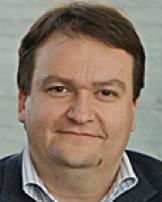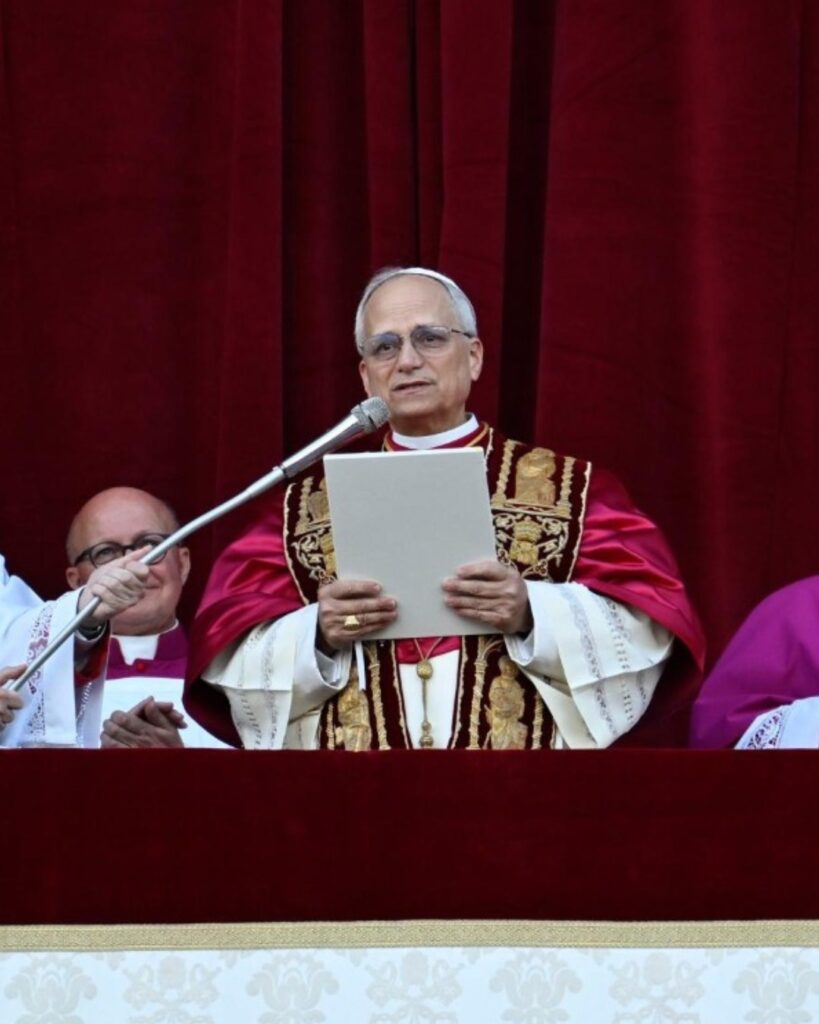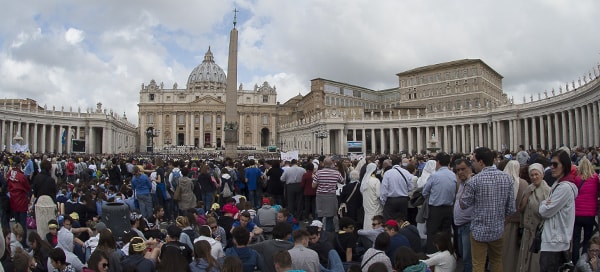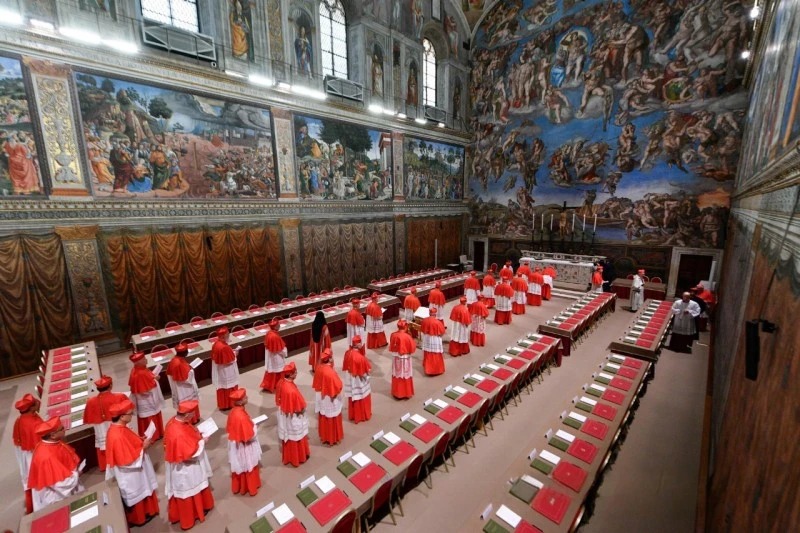God and Science: Proofs and Criticisms
The value of humanity, a prerequisite for the proofs of the existence of God

Massimiliano Berti, André Rubbia, Antoine Suarez
“God, Science, the Evidence” by Michel-Yves Bolloré and Olivier Bonnassies is a book that seeks to present modern scientific evidence in favor of the existence of God. It has been a bestseller in France and has gained widespread attention in Spanish- and Italian-speaking countries, revealing a notable interest in its thesis. The authors, after years of research and collaboration with other scientists, argue that recent scientific discoveries pose a challenge to the materialist conception that the universe can be fully explained without invoking a creator.
The book has not only sparked notable interest among the public but has also been the subject of criticism. In this brief essay, we aim primarily to highlight the significance of these critiques: rather than invalidating the book’s argumentation, they reveal that the “evidence” it provides —and indeed, any evidence for the existence of God— rests on an implicit postulate, the unique dignity and value of humanity, and merely corroborates this postulate for those who accept it.
Among the “criticisms,” we have chosen one that seems particularly interesting, as it comes jointly from a physicist expert in quantum gravity, Carlo Rovelli, and a professor of fundamental theology, Giuseppe Tanzella-Nitti. It was published in Corriere della Sera, Cultura on March 21, 2024, in an article titled: “Universe, a Not-So-Intelligent Design: Science Cannot Prove the Existence of God.” The comment has the added advantage that the authors argue using simple, easily understandable examples.
In their article, Rovelli and Tanzella-Nitti primarily criticize the interpretation of “fine-tuning” (the incredibly precise “fine adjustment” of physical constants) as evidence of an intelligent project. We recall that without such precise fine-tuning, galaxies would not have formed, nor would human life have emerged. Ultimately, they conclude that both scientists and theologians agree that seeking scientific evidence for matters of faith is misguided. They emphasize that empirical-deductive science and religion should operate on different and separate levels and that conflating these levels risks undermining both the value of the scientific method and the depth of religious experience.
Before delving into the analysis of the examples and arguments presented by these two authors, we would like to point out that, in our opinion, the “forced” separation between science and religion they propose, as well as the vision of pure materialism, are overly simplistic and avoid the possibility of a more enriching debate. The thesis that science and religion are “non-overlapping magisteria” and that “the interpretation of the world as the expression of a Creator God” exists solely on an “aesthetic, existential, theological” plane strikes us as outdated. What is more, the significant interest generated by the book by Bolloré and Bonnassies demonstrates that the public senses something is happening at the intersection of science, philosophy, and religion, and wants to better understand what is going on.
Although the article by Rovelli and Tanzella-Nitti appears to be a strong criticism of the book by Bolloré and Bonnassies, we believe it contains very interesting observations that clarify some implicit premises. Let us examine their examples and arguments. The first one goes as follows:
Carlo is an individual whose grandparents met by chance at a local festival and fell in love. An accidental delay would have prevented their meeting, and Carlo would not exist. Rovelli and Tanzella-Nitti argue that this “non-existence” of Carlo would not result in any significant change to the universe. The fact that Carlo considers his existence to be extremely valuable does not mean the universe was designed with the intent for Carlo to exist. The astonishing “fine-tuning” of the universe’s constants amazes us because we believe ourselves to be especially valuable. However, “we are valuable to ourselves.” With different constants, we would not exist, but this “would be indifferent to the universe.”
We believe that this example-argument from Rovelli and Tanzella-Nitti is convincing only if one accepts a very “materialist” view of Carlo’s existence, asserting that this “material Carlo” holds significance only for himself, but not for other people, much less for the rest of humanity or the universe. This perspective is clearly flawed. Certainly, the meeting and falling in love of Carlo’s grandparents involve elements of fortuitous “coincidence” that determined his birth. However, the conception, birth, and upbringing of the child Carlo are undoubtedly the result of an intentional, intelligent, free, and generous project, first on the part of Carlo’s grandparents and later continued by his parents’ project. Carlo has enormous value, not only for himself but also for his parents, grandparents, and humankind!
On the other hand, if the relationship between Carlo’s grandparents had developed differently —if, for example, at the festival his grandmother had met another young man— a human being with a different DNA might have been born, but with the same value as Carlo. A minute difference in events would have altered the course of events, but not significantly for humanity as a whole.
From our perspective, any argument in favor of the existence of God must begin with the recognition of humanity’s special value. That is, the prerequisite that my existence is meaningful not only to myself but also to others, to whom I also attribute absolute dignity and whom I acknowledge as deserving of unconditional respect. The comment by Rovelli and Tanzella-Nitti has the merit of highlighting the essential importance of this prerequisite.
The significance of “fine-tuning” arguments, in our view, is as follows: If we accept that there exists a universal legislator who desires to create humanity —free and creative in turn— because this legislator attributes special dignity and absolute value to human beings, then the fact that the laws of the universe and its constants are so “astonishingly fine-tuned” to allow the existence of this humanity becomes a sign revealing the creative intent of this eternal legislator, who engraves in us the law of mutual respect.

Moreover, we also believe there are objective arguments in favor of humanity’s intrinsic significance on the scale of the entire universe. Humanity is cosmologically significant due to its singularity and complexity. Intelligent life requires an incredibly specific set of conditions, making it an extremely rare phenomenon in the universe. Despite extensive research in the search for extraterrestrial intelligence, no definitive evidence has been found, thus highlighting the unique status of intelligent life on Earth.
Humanity’s unique cognitive abilities, which allow us to study and understand some of the universe’s extraordinary mysteries, have led to remarkable scientific achievements, such as the Big Bang theory and the discovery of exoplanets. These astonishing capacities elevate the role of intelligent life in unveiling the mysteries of the cosmos, surpassing the purely Darwinian view of brain evolution driven solely by a terrestrial mechanism of “the survival of the fittest”.
Our ability to influence the future of the cosmos through technological advancements and space exploration underscores humanity’s potential to play a fundamental role in the continuation of intelligence and consciousness beyond Earth, contributing to a vast cosmic narrative.
In summary, when it comes to recognizing the validity of “fine-tuning” arguments, the axiom that humanity possesses an absolute and intrinsic value (independent of particular interests or the dominance of a group in power) seems to us to be “common ground” and indeed it is shared by both the critics (Rovelli and Tanzella-Nitti) and the criticized (Bolloré and Bonnassies). This axiom is a prerequisite for any proof of the existence of God.
Another important point of connection between them is offered by the second example-argument presented by Rovelli and Tanzella-Nitti: “If the structure and evolution of the universe reflects the intention of a Creator God, this cannot be deduced from the observations and measurements inherent to the scientific method. However, it can be proposed as a hypothesis based on other sources of knowledge that are not strictly empirical. One cannot access a person’s intentions merely by measuring the footprints of their shoes. To conclude that someone is a murderer, measurable clues alone are insufficient: Sherlock Holmes must resort to the hypothesis of a causative agent, of a personal and intentional purpose, which is not accessible from the empirical plane.”
We completely agree! This is precisely what we do when we read a book: we conclude the existence of the author and infer their identity by hypothesizing the presence of a causative agent with a personal and intentional purpose behind the writing of the manuscript. We do this because, in the manuscript, we perceive an order similar to the one we intentionally introduce when we write, but in the case of the manuscript under consideration, it is an order that we did not create. Thus, we accept that the author of the manuscript is a personal being like ourselves. Based on a similar premise, by “reading” the laws of the universe, we can analogously trace back to a superior being at its origin. We perceive in the universe an order that does not come from us but is similar to the order we intentionally introduce into the world around us, and we conclude that this order originates from a superior personal entity acting intentionally. And here again, the prerequisite for this argument is that human beings are personal entities who act intentionally!
In conclusion, we believe that the book by Michel-Yves Bolloré and Olivier Bonnassies presents us with an extensive scientific evidence that, rather than convincing us that God exists, amazes us and leads us to “delight in faith.” We do not believe in God because science proves His existence.” Rather, the realization that the physical laws and constants are set in such an incredible way — and with such an unprecedented degree of precision! — allowing for the emergence of humanity, which we recognize as having absolute value, leads us to be awe-struck by God.
And perhaps this sense of wonder is the best argument to convince us that we exist because God loves us!
Massimiliano Berti, André Rubbia, Antoine Suarez
—————————————-

Massimiliano Berti is a professor of Mathematical Analysis at SISSA in Trieste.

André Rubbia is a professor of Particle Physics at the Swiss Federal Institute of Technology Zurich (ETH Zurich) in Switzerland.
Antoine Suarez is a researcher specializing in Quantum Physics and the founder of the Center for Quantum Philosophy in Zurich and Geneva.
Related

The Alliance Between Friendship, Recognition of the Other, and Technology
Observatorio de Bioética UCV
09 May, 2025
13 min

Leo XIV: “Peace be with you all”
Exaudi Staff
08 May, 2025
5 min

The True Conclave
P Angel Espinosa de los Monteros
08 May, 2025
3 min

The Conclaves of History: The Holy Spirit Guiding the Barque of Peter
Exaudi Staff
08 May, 2025
8 min
 (EN)
(EN)
 (ES)
(ES)
 (IT)
(IT)

